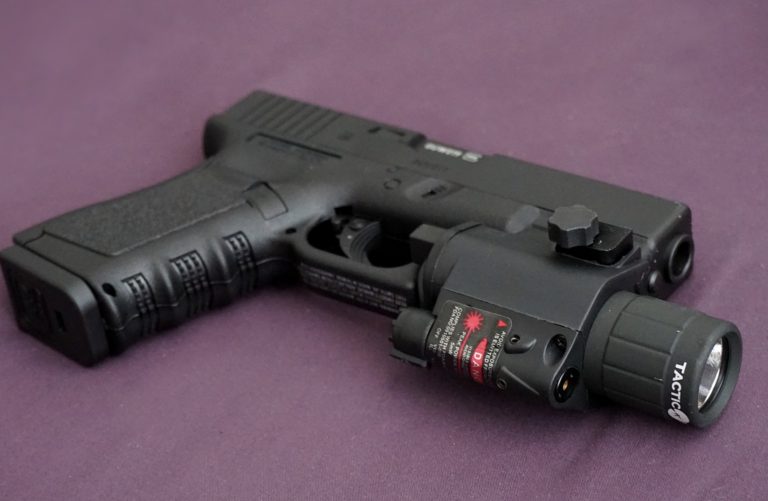Every gun geek from different walks of life has probably enjoyed squeezing the trigger of certain BB guns. We often reminisce about those successful fleeting moments when we hit a rubber duck, stuffed toy, or paper target dead on the center that only lasts a few seconds. Apart from the satisfaction and craving of precision shooters managing to get their fix, learning about BB guns and their types is beneficial for our passion.
What are BB Guns?
You might think you know all about BB guns and that they generally shoot pellet rounds, but there is more to it than you realize. The general acronym of “BB” is used to cover a range of air-powered guns that dispel plastic rounds as they are represented today. The BB in air guns originated from the dimension nomenclature of lead shots used as ammunition with smoothbore shotguns.
The BB pellets as they were called started when W.F. Markham and the Markham Rifle company chose them as ammunition when they produced the first spring-piston gun composed of mostly maple wood minimal in metallic components. BBs have evolved alongside advanced methods of assembly and design as we can observe with The UK largest BB Guns supplier that manufactures the finest grade BB guns available for public use. The very first airgun projectile began in 1886 alongside Markham’s spring-piston gun and measured 0.180 inches in diameter, a typical shotgun pellet of the period.
In 1887, Clarence Hamilton famous for the .22 Rimfire made an all-metal spring-piston gun which can fire the 0.180-inch buckshot following Markham’s footsteps. The founder of Plymouth Iron Windmill Company named Lewis Cass Hough was impressed with Clarence Hamilton’s demonstration exclaiming “Boy, that’ a daisy!” and ordered several hundred be manufactured as a premium offer for farmers purchasing his iron windmills. The following year, Hamilton’s gun entered massive production alongside iron windmills. The weapon grew in popularity exceeding the demand for iron windmills that resulted with Plymouth Iron Windmill Company producing the firearms to be sold directly.
Hough’s initial Plymouth Iron Windmill Company changed its name to Daisy Manufacturing Company in 1895 as a tribute to his first statement regarding Hamilton’s BB gun. In 1920 the American Ball Company attempted to manufacture steel BBs under the trademark of Bulls Eye when kids rummaged through piles of discarded metal scraps. It resulted with massive numbers of BB guns returned to Daisy Manufacturing Company forcing Cass Hough, grandson of Lewis Hough to investigate.
Cass Hough discovered that the steel BBs exceeded the tolerances of their airguns, causing split-barrels. Modifications were made to Daisy Manufacturing’s air guns to accommodate the new steel BBs. By 1928 Daisy Manufacturing and American Ball came to an agreement that Bulls Eye air-rifle shots were to be distributed by Daisy and American Ball be the manufacturer.
Different Types of BB Guns
BB Guns have been a staple of Western target shooting practice and saw continuous development under prestigious gun manufacturers of modern times. Top firearms manufacturers, namely Sig Sauer, Smith and Wesson, and Colt have licenses to produce accurate air gun replicas of their real guns. Now there are different types of airguns available to the passionate shooter, and these are:
-
Automatic BB Guns
During WWII the invention of automatic firearms led to a revolutionary method of manufacturing real-life fully-automated weapons. The automatic BB gun the BB gun counterpart of real-world automatic weapons. These BB-propelling machine guns rely on a CO2 cartridge as their powerplant to fire continuous streams of BB pellets successfully.
-
BB Gun Pistols
BB Gun pistols are the simulation of real-life handheld pistols. All present models are accurately moulded to represent the feel and function of an actual handgun to cancel out its destructive capabilities. BB Gun pistols can be operated mechanically similar to firearms and use CO2 cartridges as propellant-fuel.
-
BB Gun Rifles
Modern BB Gun rifles follow the traditional origins of the very first BB Gun assemblies. Today’s BB Gun Rifles are used mainly for competition shooting following Daisy’s manufacturing of their model 99 Champion. BB Gun Rifles now imitate the structure and features of real-world firearms without compromising their effectiveness and accuracy. These guns now have the capacity of 100-300 BB pellets and are operated with a simplified reload and single shot.
-
CO2 BB Guns
CO2 BB Guns are air guns that use carbon dioxide as their primary propellant fuel in contrast to real rounds which use gunpowder to launch bullets from brass-casings. CO2 BB Guns are considered reliable and cancel out the need for spring-piston pumping air for reloading pellet ammunition. The CO2 units are also known as Powerlet cartridges that contain 12 grams of compressed carbon dioxide used primarily in typically compressed gas BB guns.
-
BB Guns for Kids
The primary use for BB Guns is for hunting deer known as the buckshot and shooting down harmful birds known as birdshot. Shooting a BB gun successfully is considered most companies now manufacture a rite of passage for most kids and BB Guns considerably designed for them. Youngsters may now enjoy shooting BBs with lightweight, ergonomic, and slightly powerful BB guns with the proper guidance and supervision of their elders.
Conclusion
BB Guns are created to propel a single shot of the typical 0.180-inch buckshot originally used in smoothbore shotguns. BB guns are used primarily for hunting deer and to down birds. Modern BB guns have evolved in the past decades following multiple real-life versions of automatic firearms and simulate these weapons with different types of propelling mechanisms.



0 Comments